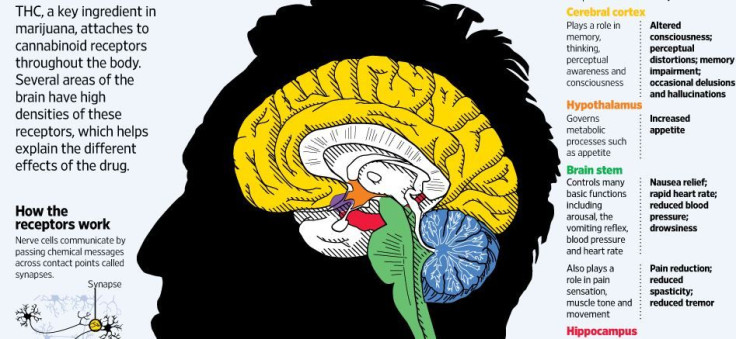The Side Effects Of Marijuana In The Brain: Some Regions Become More Impaired Than Others

Experts and organizations are educating the public on the effects of marijuana with renewed fervor as more states consider legalizing the drug. It doesn’t help more than 120 emergency room visits in New York during the week of April 8 were linked to synthetic marijuana.
Forbes reported adverse side effects of synthetic marijuana range from agitation, anxiety, and elevated heart rates and blood pressure, to seizures. But does marijuana, in any of its forms, affect the brain? There is the 2012 study confirming that frequent heavy marijuana use does cause damage to the brain’s memory and learning capacity.
Here’s how it works: THC, marijuana’s key ingredient, attaches to cannabinoid receptors throughout the body, including the brain, where there are high densities of said receptors. The hippocampus — the brain region responsible for memory storage and recall — is one region with high densities, so it’s no wonder studies show marijuana use impairs memory.
Another high density area is the cerebral cortex, which also plays a role in memory, in addition to thinking, perceptual awareness, and consciousness. When THC attaches to the many receptors in this region, smokers can experience altered consciousness, and the occasional delusion and hallucinations.
But then the effects marijuana has on the brain stem are partly what motivate the pro-recreation users. The brain stem controls the body’s basic functions, including the vomiting reflex, blood pressure, heart rate, pain sensation, as well as muscle tone and movement. So at the same time it can elevate blood pressure and heart rate, it can also relieve pain and nausea. Just ask comedian Roseanne Barr.
Click on the infographic below to see what other effects smoking weed has on your different brain regions.
Published by Medicaldaily.com




























